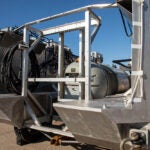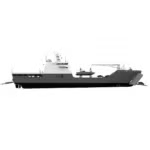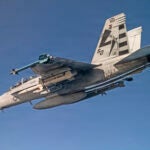
The Navy in March awarded BAE Systems a $95 million contract for research, development and low-rate initial production on electronic warfare (EW) Advanced Survivability Pods for the P-8A Poseidon aircraft, the company said this week. The contract, awarded March 29, plans for the work to mostly occur at BAE’s facility in Nashua, N.H., and Austin, Texas, and is expected to be finished by January 2030. This cost-plus-fixed-fee order is against a 2021 previously issued basic ordering agreement and includes $14…

 By
By 










